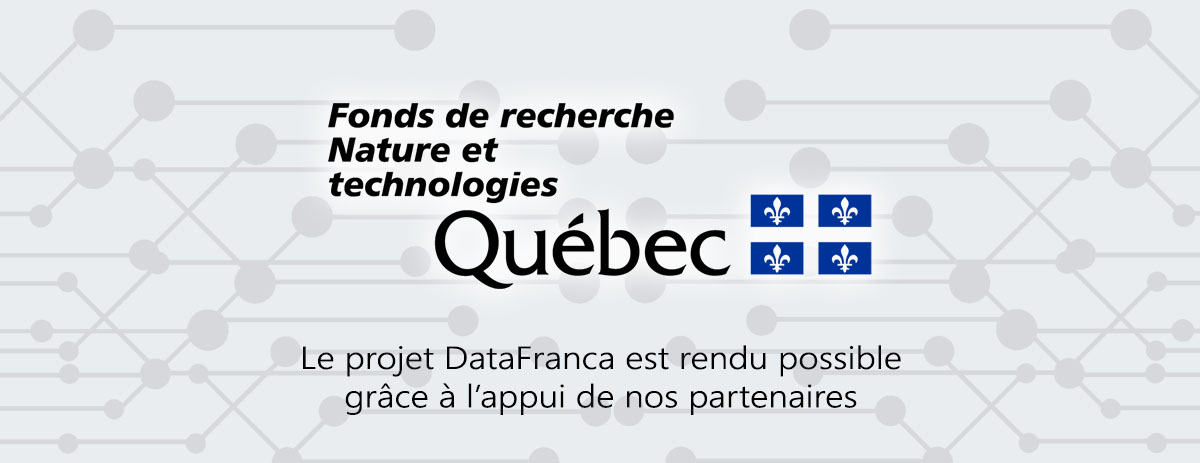« Planner » : différence entre les versions
m (Remplacement de texte — « Termes privilégiés » par « Français ») |
(nouveau terme) Balise : Éditeur de wikicode 2017 |
||
| Ligne 1 : | Ligne 1 : | ||
== Domaine == | ==Domaine== | ||
[[Category:Vocabulary]] | [[Category:Vocabulary]]<br> | ||
[[Category:Intelligence artificielle]]Intelligence artificielle<br> | |||
[[Category:Histoire de l'IA]]Histoire de l'IA<br> | |||
[[Category:Langage de programmation]]Langage de programmation<br> | |||
[[Category:Programmation logique]]Programmation logique<br> | |||
[[Category:Coulombe]]Coulombe<br> | |||
[[Catégorie:Scotty]]<br> | |||
== Définition == | ==Définition== | ||
PLANNER est un nom propre désignant un langage de programmation spécialisé pour l'intelligence artificielle qui incorporait des concepts de programmation procédurale et de programmation logique. Créé en 1969 par Carl Hewitt du MIT, PLANNER a surtout une importance historique car il influença le développement d'autres outils comme KEE, ART et Prolog. | |||
==Français== | |||
PLANNER | |||
Nom propre désignant un langage de programmation spécialisé. | |||
==Anglais== | |||
== Anglais == | |||
===Planner (programming language) | ===Planner (programming language)=== | ||
Planner (often seen in publications as "PLANNER" although it is not an acronym) is a programming language designed by Carl Hewitt at MIT, and first published in 1969. First, subsets such as Micro-Planner and Pico-Planner were implemented, and then essentially the whole language was implemented as Popler by Julian Davies at the University of Edinburgh in the POP-2 programming language.[1] Derivations such as QA4, Conniver, QLISP and Ether (see Scientific Community Metaphor) were important tools in Artificial Intelligence research in the 1970s, which influenced commercial developments such as KEE and ART. | Planner (often seen in publications as "PLANNER" although it is not an acronym) is a programming language designed by Carl Hewitt at MIT, and first published in 1969. First, subsets such as Micro-Planner and Pico-Planner were implemented, and then essentially the whole language was implemented as Popler by Julian Davies at the University of Edinburgh in the POP-2 programming language.[1] Derivations such as QA4, Conniver, QLISP and Ether (see Scientific Community Metaphor) were important tools in Artificial Intelligence research in the 1970s, which influenced commercial developments such as KEE and ART. | ||
<br/> | <br /> | ||
<br/> | <br /> | ||
<br/> | <br /> | ||
<br/> | <br /> | ||
<br/> | <br /> | ||
<br/> | <br /> | ||
<br/> | <br /> | ||
Version du 19 avril 2019 à 18:08
Domaine
Intelligence artificielle
Histoire de l'IA
Langage de programmation
Programmation logique
Coulombe
Définition
PLANNER est un nom propre désignant un langage de programmation spécialisé pour l'intelligence artificielle qui incorporait des concepts de programmation procédurale et de programmation logique. Créé en 1969 par Carl Hewitt du MIT, PLANNER a surtout une importance historique car il influença le développement d'autres outils comme KEE, ART et Prolog.
Français
PLANNER
Nom propre désignant un langage de programmation spécialisé.
Anglais
Planner (programming language)
Planner (often seen in publications as "PLANNER" although it is not an acronym) is a programming language designed by Carl Hewitt at MIT, and first published in 1969. First, subsets such as Micro-Planner and Pico-Planner were implemented, and then essentially the whole language was implemented as Popler by Julian Davies at the University of Edinburgh in the POP-2 programming language.[1] Derivations such as QA4, Conniver, QLISP and Ether (see Scientific Community Metaphor) were important tools in Artificial Intelligence research in the 1970s, which influenced commercial developments such as KEE and ART.

Contributeurs: Claude Coulombe, Jacques Barolet, wiki






